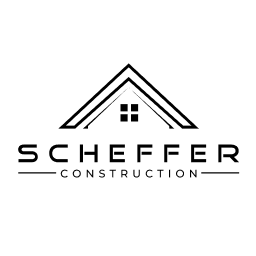August 25, 2025
How to Choose the Right Custom Home Builder for Your Dream Project
Essential guide for selecting the perfect custom home builder. Key questions to ask red flags to avoid and what to look for in a quality builder.

Selecting the right custom home builder represents one of the most crucial decisions in your home building journey. The builder you choose will significantly impact not only the final quality of your home but also your entire construction experience. At Scheffer Construction with over 20 years of experience building exceptional custom homes we understand what makes the difference between a successful project and a problematic one.
The right builder brings expertise professionalism and integrity to your project while the wrong choice can result in cost overruns delays quality issues and significant stress. This comprehensive guide will help you make an informed decision that protects your investment and ensures a positive building experience.
Professional credentials provide the foundation for evaluating potential custom home builders. These qualifications demonstrate competence regulatory compliance and commitment to industry standards that protect both homeowners and the building process.
Licensing requirements vary by location but all reputable custom home builders must maintain current licenses appropriate for residential construction. Verify licensing status with relevant regulatory agencies and ensure coverage extends to your specific project scope.
Insurance coverage including general liability and workers compensation protects homeowners from potential financial exposure during construction. Request certificates of insurance and verify coverage amounts are adequate for your project size and complexity.
Bonding provides additional financial protection ensuring project completion even if problems arise with the builder. Bonded builders demonstrate financial stability and professional accountability that protects homeowner investments.
Professional association memberships indicate commitment to industry standards continuing education and ethical business practices. Look for builders who participate in relevant professional organizations and maintain current certifications.
Construction experience particularly in custom home building provides the expertise necessary for successful project completion. Evaluate not just years in business but also the scope and quality of work completed during that time.
Custom home experience differs significantly from production building or remodeling work. Custom homes require design flexibility problem-solving abilities and project management skills that come from specialized experience in this market segment.
Local experience brings understanding of area building codes soil conditions weather patterns and municipal requirements. Builders familiar with your area can navigate regulatory requirements more efficiently while avoiding common local pitfalls.
Project portfolio review provides insight into builder capabilities style preferences and quality standards. Request to see recently completed homes and speak with homeowners about their construction experience and satisfaction levels.
Financial stability ensures builders can complete projects without financial pressures that might compromise quality or timelines. Evaluate business longevity credit ratings and current project loads when assessing potential builders.
Payment terms and practices indicate professional business operations and financial responsibility. Be cautious of builders requiring large upfront payments unusual payment schedules or cash-only transactions that might indicate financial problems.
Change order procedures demonstrate how builders handle project modifications and additional work. Professional builders have clear written procedures for documenting and pricing changes while maintaining project momentum.
Warranty programs show confidence in workmanship and commitment to long-term client relationships. Comprehensive warranty coverage backed by financially stable companies provides valuable protection for your investment.
Communication quality during the selection process often predicts communication throughout construction. Evaluate responsiveness professionalism and clarity in all interactions with potential builders.
Project management systems demonstrate organizational capabilities and commitment to efficient construction processes. Professional builders use scheduling software progress tracking and systematic quality control procedures.
Team coordination involves managing multiple subcontractors suppliers and professional services while maintaining quality standards and project timelines. Ask about subcontractor relationships and quality control procedures.
Client communication protocols establish expectations for progress updates problem resolution and decision-making processes. Professional builders provide regular communication while respecting client time and priorities.
Construction quality becomes apparent through completed project inspection site visits during construction and detailed specification discussions. Professional builders welcome scrutiny and readily provide access to demonstrate their work quality.
Material specifications and selection processes indicate builder commitment to quality and value. Professional builders source materials from reputable suppliers while providing guidance on selections that meet both aesthetic and performance requirements.
Subcontractor relationships significantly impact construction quality and reliability. Professional builders work with established teams of qualified craftsmen who understand and maintain the builder's quality standards.
Inspection and quality control procedures ensure work meets specifications and industry standards. Professional builders implement systematic quality control with documented inspections at critical construction phases.
Certain warning signs indicate potential problems that should prompt caution or elimination of builders from consideration. Understanding these red flags helps protect your investment and avoid problematic construction experiences.
Unsolicited sales approaches door-to-door marketing and high-pressure tactics often indicate questionable business practices. Professional custom home builders rarely need to solicit business through aggressive marketing approaches.
Requests for large upfront payments full payment before work begins or unusual financing arrangements may indicate financial problems or unprofessional business practices. Standard construction payment schedules tie payments to completed work phases.
Reluctance to provide references detailed contracts or proof of insurance suggests potential problems with business practices or work quality. Professional builders readily provide comprehensive information about their services and qualifications.
Significantly low bids compared to other qualified builders often indicate cost-cutting measures that compromise quality or hidden charges that will emerge during construction. Professional builders provide realistic pricing that reflects quality standards.
Client references provide invaluable insights into builder performance customer service and problem resolution capabilities. Contact recent clients to discuss their construction experience and satisfaction with both process and results.
Supplier and subcontractor references indicate builder payment practices and professional relationships. Builders who pay promptly and maintain good trade relationships typically deliver better quality and reliability.
Professional references including architects inspectors and other industry professionals can provide objective assessments of builder capabilities and reputation within the construction community.
Online reviews and ratings offer additional perspectives but should be evaluated carefully considering the source and content of feedback. Look for patterns in reviews and builder responses to negative feedback.
Contract quality and terms demonstrate builder professionalism while providing legal protections for both parties. Professional builders provide detailed contracts that clearly specify all project elements expectations and responsibilities.
Scope of work specifications should detail all construction elements material specifications and finish selections. Vague contracts often lead to disputes and unexpected costs during construction.
Change order procedures payment schedules and dispute resolution mechanisms should be clearly defined. Professional contracts address potential issues proactively while providing fair procedures for resolution.
Lien waiver procedures protect homeowners from potential liens filed by unpaid subcontractors or suppliers. Professional builders understand these requirements and include appropriate protections in their contracts.
Final builder selection should consider all evaluation criteria while weighing factors most important to your specific project and priorities. The lowest price shouldn't be the determining factor if it comes at the expense of quality or service.
Personal compatibility matters significantly during long-term construction projects. Choose builders you trust and feel comfortable working with throughout the building process.
Timeline expectations should align with builder capacity and realistic construction schedules. Be cautious of builders promising unusually fast completion times that might compromise quality or indicate overcommitment.
Scheffer Construction brings over two decades of custom home building experience to the greater metropolitan area combining technical expertise with exceptional customer service and transparent business practices.
Contact Scheffer Construction today to discuss your custom home project and experience the difference professional expertise makes!
Visit www.SchefferHomes.com to learn more about our services and view our portfolio of exceptional custom homes. Our experienced team is ready to answer your questions and help you evaluate whether we're the right fit for your dream home project.
Building relationships building homes building dreams - that's the Scheffer Construction difference.
